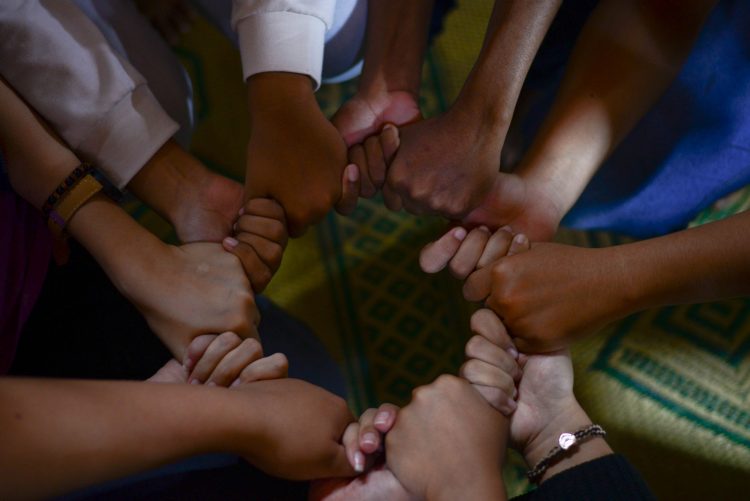- 23 Jul, 2023
- 0
- Winslow Myers
- Winslow Myers
Mobilize and Live
Mobilize and Live
by Winslow Myers
820 words
“We’ll go down in history as the first society that wouldn’t save itself because it wasn’t cost-effective.” —Kurt Vonnegut
One summer when I was in college I boarded a so-called “student ship” for Europe. This slightly down-at-the-heels craft was called the “Groot Beer” (big bear), run by the Holland-America line, and it took eight days to cross the Atlantic. The “Groot Beer” had been built as a so-called “Liberty Ship” during World War II, one of 2700 such vessels designed to keep arms, men and goods crossing to Europe in spite of the deadly depredations of German U-Boats.
The average time to construct these 450-foot steel ships was 30 days, and the fastest time was four and a half days! Imagine the urgency, the round-the-clock teamwork of the designers, welders and riveters, tying together the modular sections, slapping on paint, and letting another steel giant slip down the runway into desperately needed service.
This is only one example of the extraordinary mobilization of resources, talent and will that defeated the Axis powers. Is there something about us humans 85 years later that prevents a similar mobilization against our real enemies? We possess vastly faster and more efficient productive capabilities than those that were available to Franklin Roosevelt.
But the reality of our personal and global interdependence has not yet penetrated our minds deeply enough for us to undergo a similar, now worldwide, mobilization.
Fly over any major city at night, and you will see lights burning in hundreds of skyscrapers as if global warming did not exist. Examine the military budgets of the nuclear powers and you will see trillions of dollars pouring into the renewal of nuclear arsenals—weapons for a war no one can win.
Establishment foreign policy journals are full of articles about the Ukraine war and its implications for possible hot conflict with China—themselves also wars no one can win, except maybe the arms dealers. In the board rooms of the giant fossil-fuel companies and in the halls of Congress, executives and lobbyists rationalize slowing the inevitable transition to renewables on the basis of their obligation to maximize benefits to shareholders. Our chaotic political-media complex masks the dysfunctional juggernaut of economic and military competition with their own competition for ratings.
We humans are an odd species. In spite of all our accomplishments, there seems to be a near-fatal lag between the conditions that threaten us and the actions required for survival.
The future always belongs to the species that can adapt successfully to the conditions that surround them. These conditions now include world-ending weapons and world-stressing heat, floods and storms. Such transnational challenges dictate the nature of the changes we must make. No exceptions for any life form on earth, very much including people, rich or poor.
President Biden showed his understanding that we were in a new world when he said in Vilnius a few weeks ago:
“When others do better, we do better as well—where we understand that the challenges we face today, from the existential threat of climate change to building a global economy where no one gets left behind, are too great for any one nation to solve on their own, and that to achieve our goals and meet the challenges of this age, we have to work together. The world is changing. We have a chance to change the dynamic.”
The eco-philosopher Thomas Berry insisted that the earth cannot be saved in pieces. Anyone who puts solar panels on their roof benefits the planet as a whole. Anyone who builds more coal-fired plants to generate electricity degrades the planet as a whole. My survival and yours depends upon both of us, all of us together, doing what is necessary for the survival of all, including trees, fish, bees, plants, and rivers, whether you are my adversary or my ally.
Military strategists warn generals not to fight the last war—in other words, to adjust their thinking to actual present conditions. But in every war around the world, the reality is we are fighting that last war, and, to an ever-increasing absurd degree, it is completely the wrong war. So how do we start to fight the right war against the right enemy—war against war itself and against global climate catastrophe?
A Peace Corp volunteer once said something that sounds like the merest bromide but is profoundly true: “The earth is a sphere, and a sphere has only one side. We are all on the same side.”
Pogo said something similar: “We have met the enemy and he is us.”
These snippets of folk wisdom point the way to survival. Because we are all in the same leaky boat, the right war begins with a global climate change in the way we think. Heeding Vonnegut, we can realize the true cost-effectiveness of mobilizing against our real adversaries in a way that leads to survival and even a new flourishing.
–end–
Winslow Myers, syndicated by PeaceVoice, is the author of “Living Beyond War: A Citizen’s Guide.”
© 2023 PeaceVoice

winslow